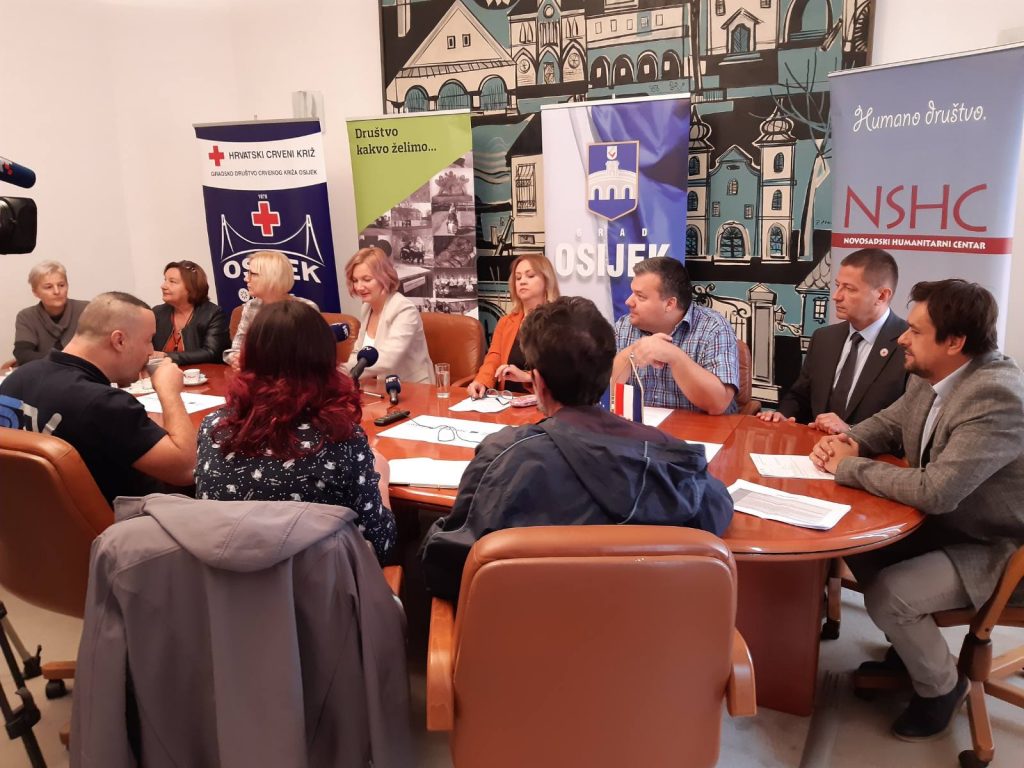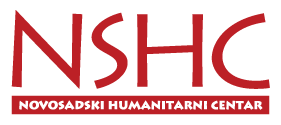
The “Inclusive Community” project aims to improve social services in Osijek and Novi Sad for people at risk of poverty and exclusion. The project contributes to this through the development of local institutional capacities and strengthening of cooperation between social service providers from Croatia and Serbia.
The lead partner of the project is DKolektiv from Osijek in cooperation with the City of Osijek, the Red Cross Osijek, the Provincial Institute for Social Welfare of AP Vojvodina, and the Novi Sad Humanitarian Center. The project is co-financed by the ERDF and IPA II funds of the European Union in the amount of EUR 315,618.17, while the participation of project partners in financing is EUR 55,697.33.
The project lasts from 1.4.2019 to 30.9.2021.

The project plans to achieve the following goals:
1. Establishment of two Centers for Social Integration in Osijek and Novi Sad. Establishment implies joint planning of DKolektiv and NSHC and development of work programmes of the the centres; organization and coordination of services; and direct provision of various social services. These services encompass: learning assistance for children; home care for the elderly; involving the elderly in volunteering to support active ageing; involving vulnerable groups in volunteering as a tool of social inclusion; education and exchange of volunteers who support capacity building and personal development of vulnerable groups and contribute to inter-generational solidarity and tolerance in the cross-border region.
2. Infrastructure for better and more efficient management of social services: Management and efficiency of social services in Osijek will be improved by establishing new services that include the development of ICT solutions and e-card systems for social assistance for 850 households (responsible partner: the City of Osijek); and adaptation of the Red Cross Osijek warehouse for the distribution of humanitarian aid and medical equipment. The ICT solution of e-cards as a model of social assistance will be transferred to partners and relevant actors from Serbia. Also premises of two Centers for Social Integration in Osijek and Novi Sad will be reconstructed and renovated.
3. Human capital development as a tool for social development of the cross-border area: The project will strengthen the capacities of NGOs, public sector and local authorities from Croatia and Serbia to better use the potential of cross-border cooperation through education, mutual exchange and joint efforts. Capacity building means increasing competencies for management, planning and development of quality social services and joint programs, exchange of experiences between NGOs and the public sector (from Croatia, Serbia, EU) on innovative models of social services for vulnerable groups, modeling a positive attitude towards volunteering as a tool social inclusion and active ageing, and fostering multicultural values of cross-border cooperation. All partners are responsible for achievement of this goal.

Find out more about Interreg Programme: https://www.interreg-croatia-serbia.eu/
Disclaimer: This article has been produced with the assistance of the European Union. The contents of this text are the sole responsibility of NSHC and can in no way be taken to reflect the views of the European Union.
